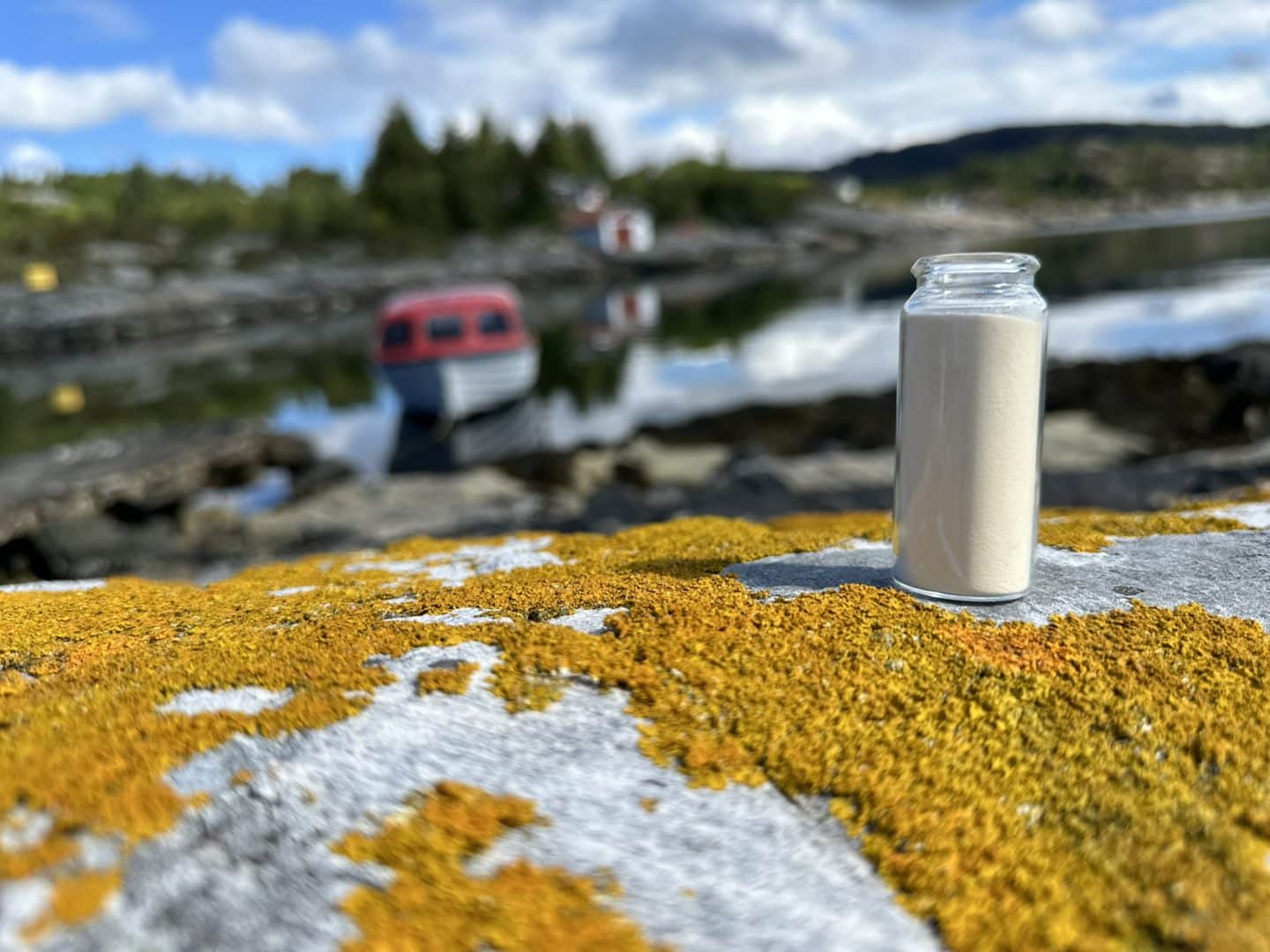Marine sources of collagen peptides are popular in the health, wellness, and beauty industry, offering many positive benefits for the human body. However, today’s informed consumers are not only looking to improve their health but that of our oceans and blue food resources too.
At biomega®, our focus on sustainable biotechnology processes, including continuous enzymatic hydrolysis, means that we can add value to premium food-grade salmon rest raw materials.
Our range of human nutrition products, including SalMe Collagen Peptides, offer brands and consumers the nutrient-rich products they need to increase the quality of collagen content in formulations and enhance their food, beverage and cosmetics portfolio.
What is collagen?
Typically known as a fibrillar protein, collagen is vital for connective tissue health and is the most abundant protein in the human body.
Salmon collagen is particularly rich in types I collagen, a vital component in maintaining the structural integrity of the skin, hair, nails, and joints, and can act as an anti-aging ingredient. It is estimated that up to 90% of our hair, skin, nails, organs, ligaments, and bones are made up of type I collagen.1
In addition, type II collagen offers a supportive function in the body, building cartilage and maintaining joint, digestive, and immune health.
As a form of ‘broken down’ collagen, our SalMe Collagen Peptides allow for easy absorption into the body, to promote products with a beauty for within positioning.
Mobility benefits
The benefits of dietary collagen in finished food formulations are rapidly gaining acceptance in the scientific community.
Studies show conclusively that it can offset disease-induced muscle wasting, inhibit age-related muscle decline, and promote muscle hypertrophy.2
As a protein, collagen has also been linked to the ability to decrease fat mass and increase fat-free mass to support positive composition changes in the human body. This is further backed by a recent 12-month randomised, double-blind, placebo-controlled study. During the study, postmenopausal women were given 5g/d collagen peptides, resulting in significant increases in bone mineral density.3
Furthermore, a recent clinical trial4 indicates that undenatured collagen types II and XI from salmon cartilage can improve and prevent knee pain and discomfort during walking.
The study, published in the Japanese Pharmacology & Therapeutics Journal analysed three biomarkers for joint cartilage and degradation. These showed that undenatured salmon collagen normalised the synthesis and degradation of joint cartilage, which the authors note may help to explain its efficacy.
Our SalMe Collagen Peptides contain approximately 34 – 39% collagen to naturally support the development of strong and resilient tissues in the body that can withstand the shock of high-impact movement.
Why choose SalMe Collagen Peptides?
There are many sources of collagen in the diet, but those found in salmon, particularly in salmon skin are a great source of type I collagen as well as the trace mineral zinc, required to activate the proteins needed for collagen synthesis.5
At biomega®, our focus on circularity and sustainable processes, such as our continuous enzymatic hydrolysis process, enables the retention of the excellent nutritional benefits found in Atlantic salmon rest raw materials.
Gently converting these assets into bioactive collagen peptides such as our SalMe range, allows brands to explore various applications, and to formulate novel protein supplements, soups, shots, and sports nutrition drinks, offering meaningful functional benefits for consumers.
For more information on our range of SalMe Collagen Peptides, please contact the biomega® team.
References:
1, Gundersen Health, “What is the benefit of collagen in your diet?”, 2021
2,3, Colleen S Dean et al, “Animal, Plant, Collagen and Blended Dietary Proteins: Effects on Musculoskeletal Outcomes”, Nutrients 2020, 12(9), 2670 https://doi.org/10.3390/nu12092670
5, Seo, Hyun-Ju et al. “Zinc may increase bone formation through stimulating cell proliferation, alkaline phosphatase activity and collagen synthesis in osteoblastic MC3T3-E1 cells.” Nutrition research and practice vol.4,5 (2010): 356-61.doi10.4162/nrp.2010.4.5.256
